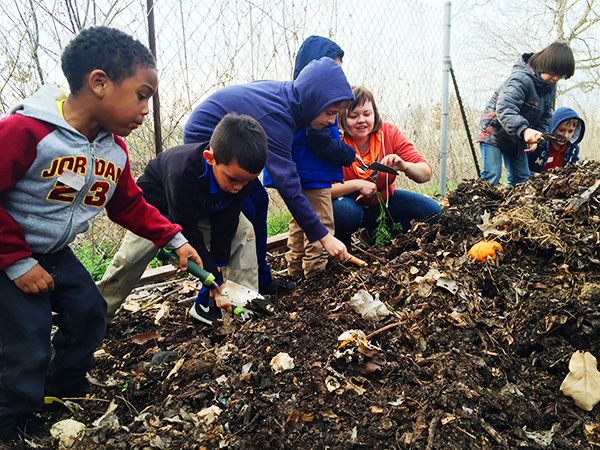There is nothing that I like more than to nerd out about the science of gardening. This week, we’re looking at something we actually can’t see at all: microbes. The microbial world is complex, expansive, and impressive. Read on for some mind-boggling facts about microbes, how they help our food grow, and why they are essential for some of our favorite foods.

Must have Microbes
Ellen Orabone
General Microbial Facts
- Microbes have been around longer than anything else on Earth. If you imagine the Earth’s existence as a single day, microbes appeared at 5AM, dinosaurs at 10PM, and humans only a few seconds before midnight.
- There are 10 times more bacteria in the average human’s digestive system than there are cells in the entire body.
- There are more microbes on one person’s hand than there are people on the Earth.
- Microbes generate at least half the oxygen we breathe.
- Contrary to the wide-spread fear of microbes, only about 5% of them are harmful.
Microorganisms in Soil and Compost
Microbes are essential for food gardeners. They help our plants uptake nutrients, convert our food scraps into compost, and aerate the soil for increased root growth.
The decomposition of organic matter and creation of soil would not be possible without the tireless efforts of the trillions of microorganisms that exist all around us. They’re also responsible for creating the rich, nutritious compost that turns your veggies into irresistible treats.
Did you know…
- One single teaspoon of soil contains 1 billion bacteria, 120,000 fungi, and 25,000 algae.
- Bacteria are responsible for the process of nitrogen fixation – the conversion of atmospheric nitrogen into nitrogen compounds that plants can uptake as an essential nutrient for their growth.
- Microbes can cook a compost pile to up to 140°F! Bacteria of the genus Thermus exist in the hottest compost piles and were originally discovered in the hottest springs at Yellowstone National Park.
- The stench of decaying matter is replaced by a fresh earthy smell thanks to actinomycetes bacteria. If your compost is unbearably smelly this could be due to poor aeriation forcing the microbes to switch from aerobic decomposition to anaerobic decomposition which produces methane gas.
- Larger critters such as worms, slugs, and insects also digest the decomposing matter, excreting finished compost as they munch their way through our food scraps. They also aerate the soil by creating tunnels and space for plants’ roots to grow.
Microorganisms in Food
Do you find wine and cheese to be a delectable pairing? If so, you can thank microbes for that. Surprisingly, microorganisms play a huge role in the production of various foods that you may be eating every day. Also, several microbes such as those that are fed by probiotics are extremely healthy for your digestive tract and overall immunity.
- Fermentation is the chemical breakdown of a substance by bacteria, yeasts, or other microorganisms, typically involving effervescence and the giving off of heat. Foods that we enjoy that have gone through the fermentation process include bread, cheese, pickles, ketchup, kimchi, miso, sauerkraut, sour cream, soy sauce, Tabasco sauce, tempeh, and yogurt. Fermented beverages include beer, cider, wine, kombucha, and kefir.
Interested in microbes and food? We have classes to whet your appetite!
